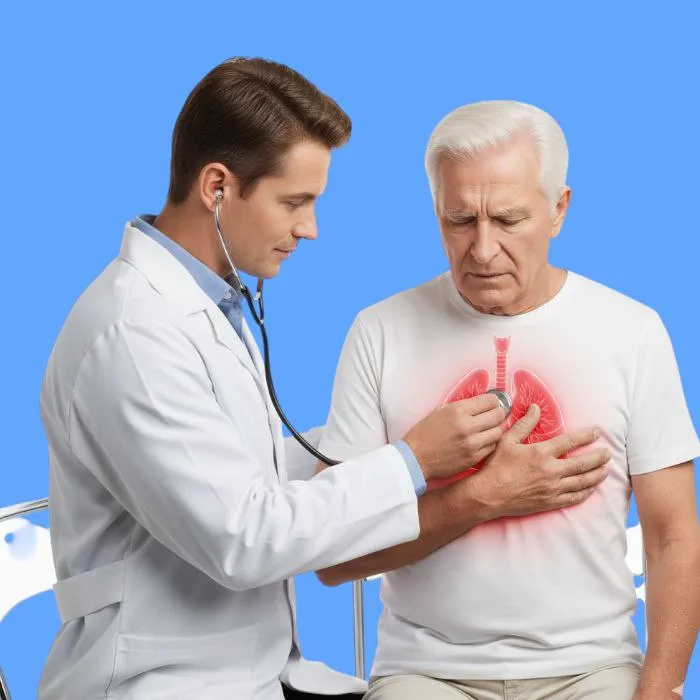What is lung cancer?
Lung cancer is an abnormal growth of cells within the lung tissue, leading to the formation of tumors that may spread to other parts of the body.
It is one of the most dangerous and common types of cancer worldwide, and is often linked to smoking and environmental factors.
Causes of Lung Cancer
Lung cancer is caused by several factors, including:
- Smoking of all kinds, which is the leading cause of the disease.
- Prolonged exposure to secondhand smoke.
- Exposure to chemicals such as asbestos and arsenic.
- Air pollution and inhalation of toxic gases.
Symptoms of Lung Cancer
Symptoms appear gradually and include the following:
- A chronic cough that does not improve over time.
- Coughing up blood or phlegm.
- Shortness of breath or wheezing.
- Unexplained weight loss and persistent fatigue.
How is Lung Cancer Diagnosed?
Diagnosis is made through a series of medical tests, including:
- Chest X-rays or CT scans.
- Sputum analysis to detect cancerous cells.
- Lung tissue biopsy to determine the type of tumor.
- Magnetic resonance imaging (MRI) is used to determine the extent of cancer spread.
Lung Cancer Treatment

Lung cancer treatment depends on the stage of the disease and the type of tumor. The most common approaches include:
- Surgery to remove the affected part of the lung in the early stages.
- Chemotherapy to destroy any spread of cancer cells.
- Radiation therapy to reduce tumor size and control symptoms.
- Targeted or immunotherapy to improve the body's response to treatment.
When to See a Doctor?
You should see a doctor immediately if you experience a persistent cough, cough up blood, or experience unexplained shortness of breath, especially if you are a smoker or exposed to pollutants.
Tips for Preventing the Disease
The disease can be prevented by adopting healthy lifestyle habits such as:
- Quitting smoking completely and avoiding secondhand smoke.
- Eating a diet rich in antioxidants and fresh fruits.
- Avoiding exposure to toxic gases and chemicals.
- Undergoing regular checkups for at-risk individuals.
Frequently Asked Questions
Can lung cancer affect non-smokers?
Yes, it can affect non-smokers due to pollution or genetic factors, but at a lower rate.
Can a lung cancer patient be cured?
Yes, if it is detected in its early stages and the patient receives appropriate treatment.
Does lung cancer cause chest pain?
Yes, in some cases, it causes chest pain due to tumor spread or pressure on nerves.
Does lung cancer show up in a blood test?
It does not show up directly in a blood test, but tests may reveal indirect signs and are only used to aid diagnosis, not to confirm it.
Article Summary
Lung cancer is one of the most dangerous types of cancer and is most strongly linked to smoking, but it is treatable when detected early.
Quitting smoking, a healthy diet, and regular medical checkups are the best ways to prevent it.